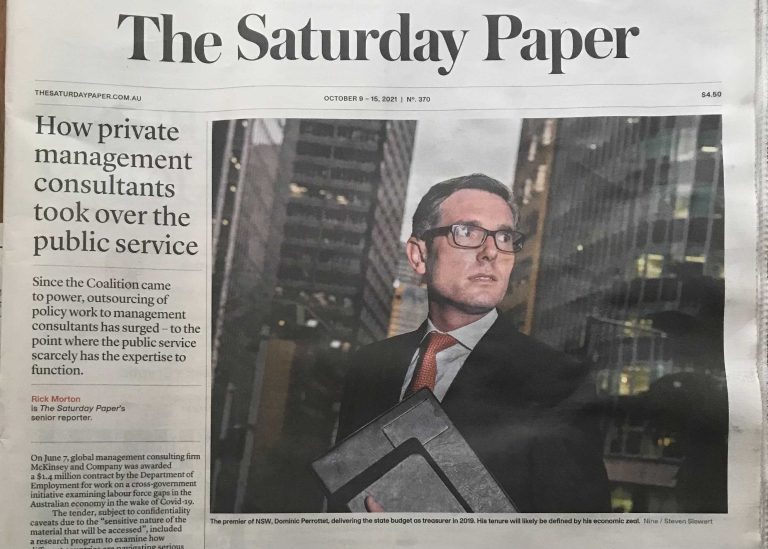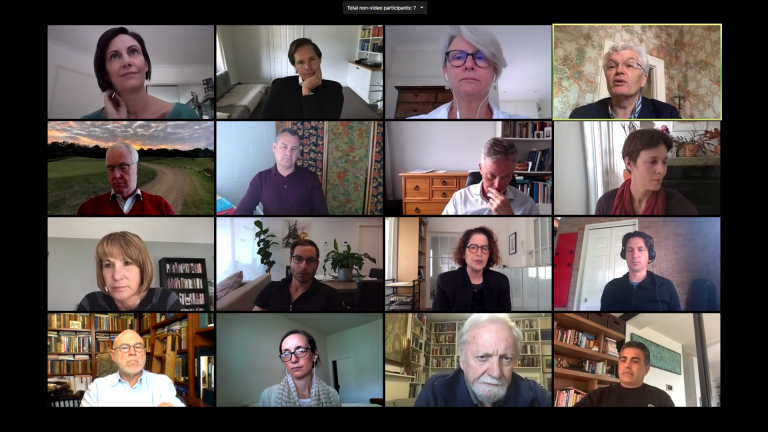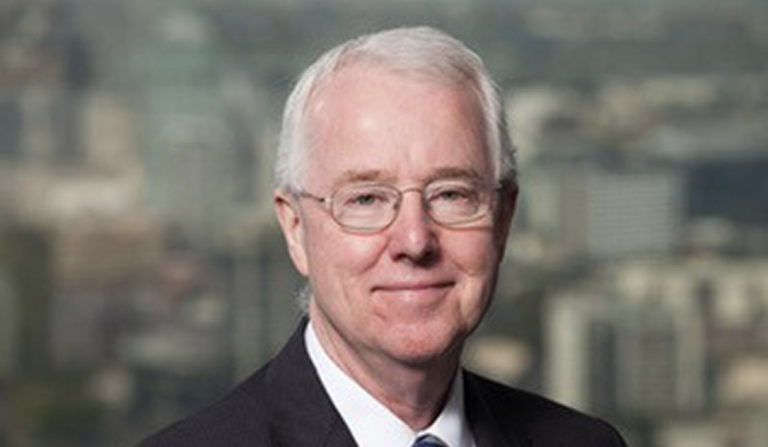It is becoming increasingly apparent that we are facing humanity’s greatest adaptation challenge —- the urgent need to reduce our oil dependency and avert catastrophic climate change. While politicians would like us to believe that this crisis can be fixed with a silver bullet (such as nuclear power or carbon sequestration), many of us are deeply sceptical that any one-dimensional approach will provide the solution. On the contrary, there is a sense that we are enmeshed in a turbulent, complex system with no-one at the helm and no-one able to predict or plan for the consequences. While many of us are willing to make important changes in our own lives, individual efforts alone are not enough. While we may hope that governments will regulate to reduce greenhouse gases, we are concerned that this will be too little too late. Deep down, we know that if we are to make the transition to a more sustainable world, it will require an enormous social and cultural shift in our attitudes, values and behaviours.
|
[adsense:234×60:1:1] |
Such a shift is unlikely to occur with a top down, unilateral edict. For any policy directed at climate change to be both successful and equitable, we will need to radically rethink how to involve citizens in the policy-making process.
Governments do not have a good track record of involving citizens in policy development. Although community consultation has been ensconced in regulation, especially in the environmental and planning portfolios, the result has usually been disappointing. Rather than enabling citizens to add value to the policy-making processes that affect them, community consultation has often backfired, with participants feeling outraged or disinterested and public sector staff feeling besieged.
It is not difficult to see why this has happened.
- Community consultation has been tacked onto our technocratic, managerial systems of governance. Our society has become so specialised and focused on credentials that much of the decision-making has been handed to ‘experts’, to whom we have given the power to determine what is legitimate knowledge and what is not. While policy makers are prepared to accept the views of such ‘experts’, the views of ordinary citizens are treated with suspicion.
- Most forms of community consultation tend to attract those with vested interests. The ‘uninterested’ public generally has no incentive to participate – and when they do participate, their voices are rarely heard. Unsurprisingly therefore, most consultation has failed to forge a communitarian outlook.
- Our hierarchical institutions ensure that the gateways to decision-making are strongly guarded; those with extraordinary influence may enter but ordinary citizens are excluded and often left in the dark. The community is frequently cajoled to ‘have a say’, but when ordinary members of the community do so, there is rarely any indication of how these views have been considered in policy development.
The unintended consequences of bolting community engagement on to such a system have been:
- The alienation of ordinary citizens, who feel unable to participate in the decisions that affect their lives.
- The growth of highly successful, media-savvy lobby groups and ‘communities doing it for themselves’ without the involvement of politicians and policy developers — or in spite of it.
- The alienation of policy developers and decision-makers from what Michael Booth and others (2006) have called ‘practical wisdom’ — the experience, insight, understanding and local knowledge of ‘ordinary people’.
To deal with the complexity of climate change and oil dependency, we need a radical rethink of how to engage citizens in meaningful, influential dialogue. Climate change is complex and unpredictable. In our current attempts to combat it, we resemble someone who shoots at rapids and whirlpools and expects them to disappear. We need a new paradigm to guide our thinking if we are to stay on course. ‘Systems thinking’ may be the best way to find points where we can intervene and ‘nudge’ the system towards a more sustainable direction. However, we will need to heed key principles:
- In systems theory, elements of the system only interact with their neighbours (Finnigan 2005). Hence, top down policy solutions that aim to impact equally on the whole population are not going to work. Much of the adaptation will need to take place at a local level.
- However, local level adaptation does not take into account what Portney (2005) has termed ‘the three deadly sins’ that can stop local decision-making from leading to long term sustainable solutions. These include the ‘not in my backyard’ (‘NIMBY’) syndrome (e.g. ‘public transport is fine as long as the bus stop is not outside my house’); the tragedy of the commons (e.g., ‘I don’t want a new freeway outside my house either but I’m still going to buy a second car that will contribute to the need for more freeways’); and the difficulty of reducing ‘ecological footprints’ when the full impact of that footprint is not felt locally (e.g. when environmental impacts such as waste are shifted large distances into someone else’s ‘backyard’) These ‘sins’ represent the system-wide application of individualistic attitudes and behaviours that work against the common good.
Awareness of ‘the three deadly sins’ alerts us to the danger of throwing out one inadequate world view of technocratic, managerial decision-making for another potentially inadequate world view of local interest decision-making. Instead, we need to devise ways for the local to be ensconced within a broader, communitarian frame.
A second critical feature of complex systems is the interdependence of the elements. The interrelationships between people, politics, power and the natural and economic world will be critical to significant change. Meaningful discourse across a number of traditional divides will also be crucial; including public/private, local/national/international and economic/social/environmental. The focus will need to be on replacing false dichotomies with meaningful attempts at resolution.
However, to achieve this, ordinary people will need to practise systems thinking. This is not easy, and cannot be done alone. It will be important for all of us to see the world from the perspective of both like minded people and those with different views; to understand complex systems we need to bring in as many different perspectives as possible. We’re going to need to grasp a new principle – we are all on the same side, playing the same game.
We are beginning to see opportunities for this kind of inclusive and influential engagement through a nascent social movement: Deliberative Democracy.
Deliberative Democracy combines three basic tenets (Carson & Hartz-Karp 2005)
- ‘Representation’ and ‘Inclusion’. As in Athenian times, the opportunity exists for a representative group of ordinary citizens, of the population, to come together to deliberate on issues important to society. However, this time those deliberations need to include citizens regardless of gender, age, wealth, education race and religion. Random sampling is still the best known method of inclusion.
- ‘Deliberation’. Disparate people have the opportunity to engage in egalitarian discourse on a public issue, taking into account multiple views and comprehensive, balanced information. The hope is that through respectful dialogue, participants will solve problems creatively and find common ground that reflects the common good.
- ‘Influence’. This tenet requires a reversion back to democratic basics — heeding the informed will of the people, particularly when their ideas have been tested out against others, in an environment that seeks to discover aggregate, communitarian viewpoints.
Pioneering work in deliberative democracy has been undertaken over the past five years in Western Australia (WA), particularly under the auspices of the Ministry for Planning and Infrastructure. Initiatives including Citizens’ Juries, Deliberative Surveys, 21st Century Town Dialogues and Multi Criteria Analysis Conferences have been implemented to deal with complex local issues. Each technique depends on getting a representative/inclusive group of participants to deliberate on an issue, taking all viewpoints into account, and for their deliberations to have influence on decision-makers.
One such initiative, ‘Dialogue with the City’, demonstrated how a deliberation which commenced with a broad scale goal – ‘making Perth the world’s most liveable city’ – could then be activated at the local level, with local communities determining how best to achieve that goal.
‘Dialogue with the City’ was an extensive engagement process that started with a community survey sent to a random sample of 8,000 citizens to determine their key issues and concerns. The process also involved an interactive web site, a series of feature articles on issues facing the city in the state newspaper, a commercial television program outlining various scenarios for the future that was broadcast during prime time, special listening sessions with youth, Indigenous people, and those from non English speaking backgrounds, and a competition for primary and secondary students to describe their vision for Perth in 2030. It culminated with a ‘21st Century Dialogue’ involving 1,100 participants seated at small facilitated tables with networked computers. Participants deliberated and prioritised their values and objectives, and using a regional planning game, determined the way they wanted their metropolis to grow into the future. Over the following six months, more than 100 participants worked together to create a Community Plan known as ‘Network City’, which was submitted to Cabinet and accepted. Local Governments were then funded to run deliberations in their own communities to determine how the framework could be implemented at a local level (Hartz-Karp 2005).
‘Dialogue with the City’ demonstrated the possibilities for reshaping our policy making processes. Rather than the top down ‘expert’ plan created by the Department that had been gathering dust on the shelves, there is now a Community Plan supported by local and State government, community and industry. When it appeared that this Plan too might disappear into history with the polarising impact of a forthcoming State election, it was the people involved who took up the media challenge and ensured that it lost traction as an election issue (Hartz-Karp 2005).
In his submission to the Senate Inquiry into Australia’s Future Oil Supply (2006), the author Brian Fleay makes a key recommendation:
Processes for inclusive community and stakeholder dialogue based on democratic participation with attention to social justice are essential for a successful transition to a world ‘beyond oil’.
In explaining this recommendation, Fleay outlines the principles upon which the WA deliberative democracy initiatives have been based and which he contends are critical to meaningful civic engagement:
- ‘Government must genuinely listen to divergent voices.
- Stakeholders are to listen to others in the same way.
- Governments must ensure the engagement is reflective of the communitythat the aspirations of special interest groups are calibrated against a broad cross section of the community.
- Governments to be open with the process of engagement and with its sharing of information.
- Governments to be genuinely committed to embracing the outcomes of the process.
- Establish continuous feedback links with participants to ensure the broader community stays engaged.
- Leadership must reflect and implement these principles’.
Pilot projects like those in Western Australia (which have now extended beyond the Planning and Infrastructure portfolio), show that deliberative democracy offers a real opportunity to reshape and reform our policy making processes so they are not only more relevant, but more capable of bringing about the change they intend.
Based on the success of previous projects, an extensive and innovative deliberative democracy engagement focused on reducing oil dependency and the impacts of climate change is about to commence in Western Australia. Once again, the intention is to combine local with broad scale adaptations, but this time, it will begin at the local level and culminate with a large scale Dialogue to determine the initiatives that will work best for the State.
This initiative, together with other deliberative democracy mechanisms, has the potential to significantly reform our current policy making processes, enhancing our ability to deal with the turbulence of the modern world. It is easy to understand why deliberative democracy has resurfaced now. The question is whether it will take root and spread.
References
Booth, M (2006) ‘Public Engagement and Practical Wisdom’ in S. Paulin (ed.) Community Voices: Creating Sustainable Spaces, Perth, Western Australia: University of Western Australia Press, pp. 12 — 26.
Carson, L & Hartz-Karp, J (2005) ‘Adapting and Combining Deliberative Designs: Juries, Polls, and Forums’ in J. Gastil, & Levine P (eds) The Deliberative Democracy Handbook: Strategies for Effective Civic Engagement in the Twenty-First Century, San Francisco: Jossey-Bass, pp. 120-138.
Finnigan, J, (2005) ‘The Science of Complex Systems’, Australasian Science, June, pp. 1 — 5.
Hartz-Karp, J (2005) ‘A Case Study in Deliberative Democracy: Dialogue with the City’, Journal of Public Deliberation, Vol 1, Issue 1, Article 6.
Portney, K (2005) Civic Engagement and Sustainable Cities in the United States, Public Administration Review, September/October, Vol 65, No 5, pp. 577 — 589.
Fleay, J (2005) Submission to the Senate Rural and Regional Affairs and Transport Committee Inquiry into Australia’s Future Oil Supply and Alternative Transport Fuels, pp. 1 – 42.



